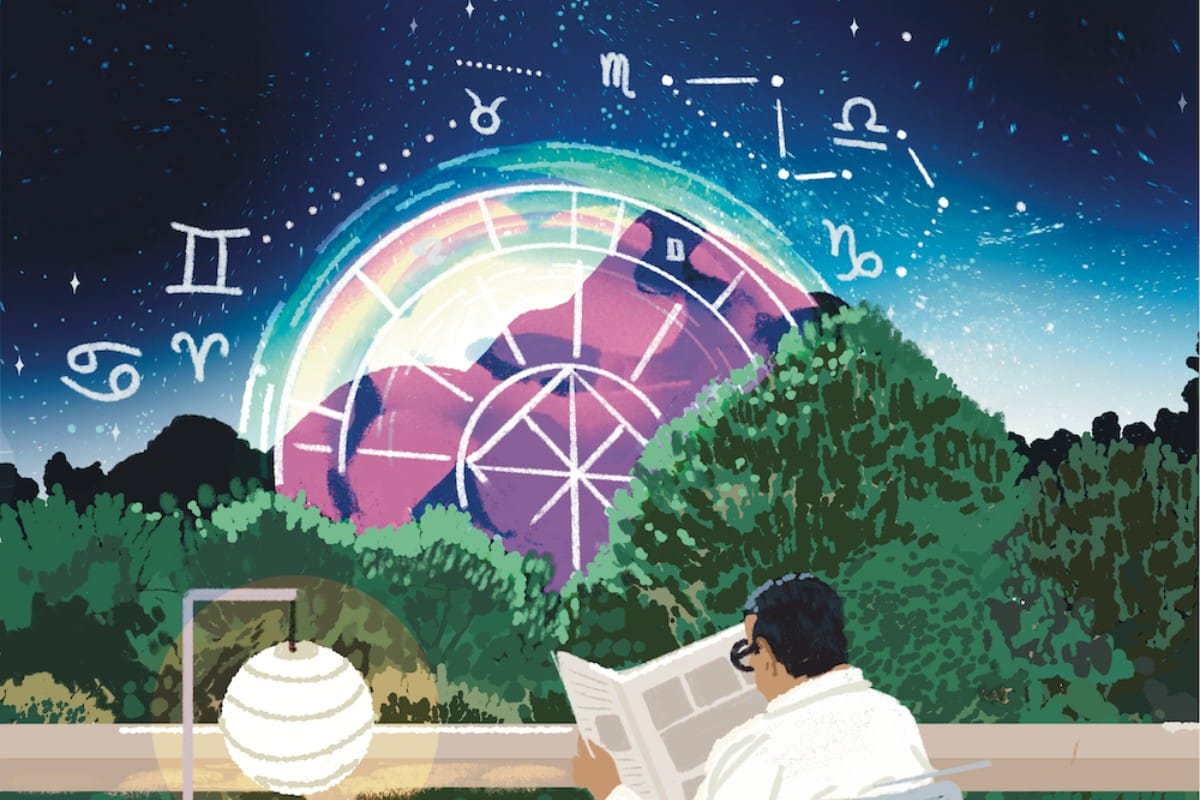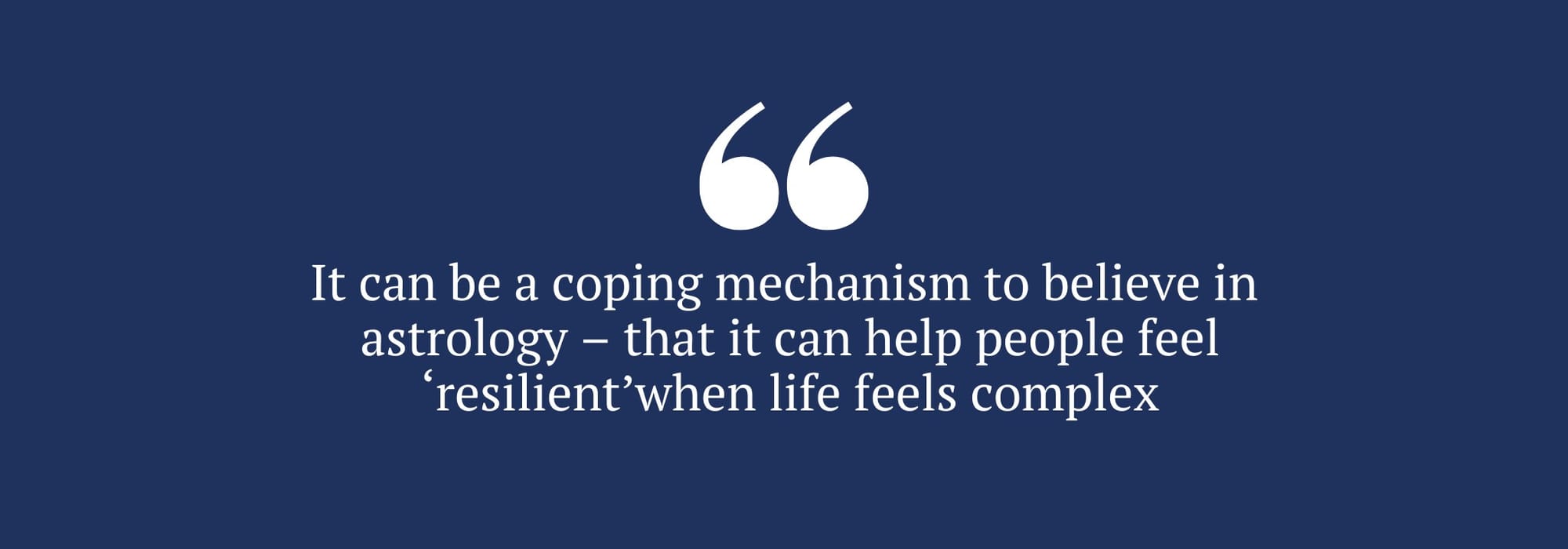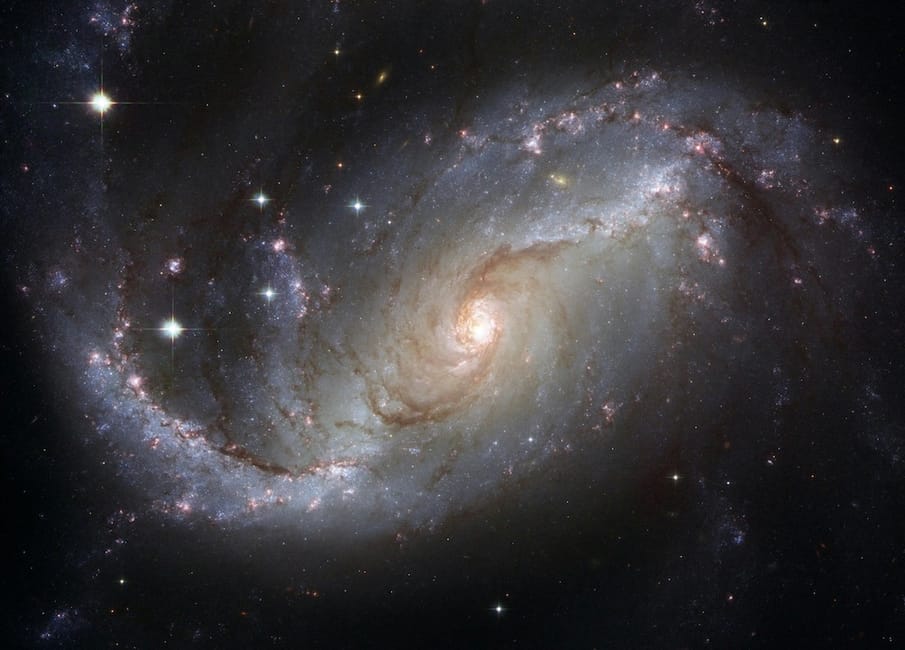Writer Emmie Harrison-West explores, with help from a psychotherapist
“I’m such a Pisces!” I cry to my husband, bursting into tears as I bury my head into his chest. It happens quite regularly, in all honesty – usually when I’m feeling panicked, anxious, or vulnerable.
While I have various ‘tried-and-tested’ coping mechanisms to endure my darkest days, it helps to remind myself that I’m not alone, or ‘weird’. That there are millions of other people who are born under the star sign Pisces, and feel just as I do.
And, for a short time, it’s a real comfort.
Let me guess what you’re thinking: star signs and horoscopes are for the back pages of your nan’s magazines, alongside the £3-a-minute number you can call to find out the initials of the person with a secret crush on you – right?
I, like I’m sure many people do, once thought that star signs and horoscopes were rubbish. That they were made up by magazine editors as a way to prey on the vulnerable, lonely, or grieving. But now, I believe that to be wrong.
I believe that having a healthy relationship with my star sign and horoscope has directly brought me joy, guidance, and true psychological benefits over the years. Whenever I’ve felt lonely, or ‘different’, my star sign has reminded me that I’m part of something bigger. At times, it’s aided me in understanding both my mood and purpose, thanks to what’s been written in the stars since the first millennia.
While there’s no scientific evidence to support the premise of the Zodiac, the tradition of looking upon celestial bodies for guidance is peppered throughout history. Some believe divination practices date back to the Sumerians, or ancient Egyptians – the oldest known civilisations.
However, star signs are to be taken with a pinch of salt, too. I recognise that there has to be a balance. There are many external factors that influence our mood, mental health, and wellbeing. For example, my husband and I apparently belong to the least compatible signs in the Zodiac, and we’ve been together for a decade. However, I still find comfort in knowing that, while I’m unique when it comes to my personality, lifestyle, and relationship, my traits and behaviours aren’t. To me, it’s a kind of therapy.

“For some people, horoscopes can bring a sense of comfort and belonging that they can relate to certain personality traits within a group – though it’s important to note that these characteristics are usually generalised,” Belinda Sidhu, a psychotherapist and counsellor, explains. “This can also help with a sense of validation – particularly when a horoscope seemingly resonates with an individual’s feelings and experiences.”
Being a Pisces, I’ve found my unpredictable emotional state exhausting at times. It’s the star sign of creativity and imagination (I’m a writer, so tick), compassion, and love – but it means my emotional sensitivity is high. While I’m in tune with others, I’m overly sensitive, constantly worry about hurting people, and am vulnerable to criticism (tick, tick, tick).
I’ve felt alone – powerless and miserable that it was ‘just me’ who felt this way. That I was ‘wrong’, and ‘broken’. That was until I started to invest in my star sign a few years ago, thanks to my friends.
When my anxiety was high, I found astrology apps recommended by my starry-eyed pals gave me much-needed direction. Resounding wisdom from apps guided me into making good decisions on the days I needed it most. I could do with it what I pleased, but it felt like a consolation to have a self-help guide of sorts in my pocket.
Soon, I started to delve into my moon and my rising signs – and it made total sense. I felt seen for the first time in, perhaps, ever. Now, whenever I’m feeling low, anxious, or recognise the start of panic symptoms, it helps to initially guide my life and thoughts with my horoscope.
Inbaal Honigman, a celebrity psychic with more than 30 years of experience, believes astrology is a “fun way to learn about different personality types, and to see where each person fits in the world”. She says: “Astrology doesn’t decide who’s better or worse – everyone is free to be themselves.
“I feel that’s a wonderful psychological benefit, as it’s very common to feel uneasy about this personality trait, or that personality trait. Astrology says that all characteristics are fine, whether outgoing or bookish, loud, or reticent, everyone is their own selves.”
Astrology is not a science, but some researchers believe being in tune with your star sign could have psychological benefits, too (though there’s little scientific evidence to prove this). I find that rings true for me, especially on the darkest of days where I feel lacking in direction.
“The predictions or advice that horoscopes offer may provide a sense of reassurance or guidance, particularly if someone is going through a tough time – it may even bring a sense of hopefulness,” psychotherapist Belinda Sidhu notes.
“In addition, any predictions could also be used as a tool for self-reflection – prompting individuals to reflect on their lives, thoughts, feelings, and behaviours.”
A study by Dr Mark Hamilton in Comprehensive Psychology, published in 2015, suggests that it can be a coping mechanism to believe in astrology – that it can help people feel “resilient” when life feels complex. The same research presents astrology’s value as a “heuristic scheme for understanding the complicated universe in which we live” – basically meaning that it can help people learn something for themselves through short-term goals and solutions.

Another study, written by Dr Paul Clements and published in Culture and Religion in 2020 claims that astrology “offers a spiritual understanding, self-knowledge, and self-determination” which, in turn, “instructs the project of self-identity”. Astrology, therefore, becomes a tool that can be turned to for comfort.
In a similar vein, while I recognise that I’m overly sensitive and have a tendency to overthink just about everything, I’m aware that I have social anxiety, too. And that I struggle with my mental health, and that deserves medical help and intervention – not just a reliance on divine reason.
“Some individuals may become dependent on horoscopes, relying on them heavily for guidance,” Belinda says. “This can affect your ability to make healthy decisions for yourself, and take responsibility for your actions and what’s happening in your life. If an individual becomes heavily dependent on their horoscopes and receives a perceived negative prediction, this may cause unnecessary anxiety and stress.”
Mental illness shouldn’t just be ignored or accepted as part of your life, just because your star sign or horoscope implies that you have a tendency to it. It’s important to work with the Zodiac as a way of understanding yourself and the world around you – not as a rigid prediction of what’s to come, or a failsafe overview of your identity.
Horoscopes can provide a daily dose of positivity, but it’s worth remembering that they’re written from the perspective of a ‘one-size-fits-all’ approach. That we choose to focus on the parts that are positive, and can shoehorn into our lives, often for temporary satisfaction.
“Treat horoscopes like advice from nanna,” Inbaal Honigman says. “It can be very knowledgeable and have some really big ‘hits’, but try not to worry too much about the ‘misses’, as the advice in horoscopes is quite generalised.”
Ultimately, horoscopes and star signs themselves as a ‘higher power’ of sorts, can provide control and reassurance when we need it the most. If anything, they can give us the confidence and inspiration to just try, while it’s our intuition that should guide us.
“Horoscopes also provide a bit of fun and entertainment – something you can share and discuss with your friends,” Belinda Sidhu adds. “And we know there are many psychological benefits to socialising and spending time with others.”
I know, for me, that my head is no longer in the clouds, but in the stars, and it’s something that’s opened up a whole new way of looking at myself and the world.


Comments